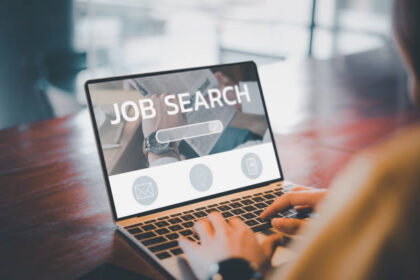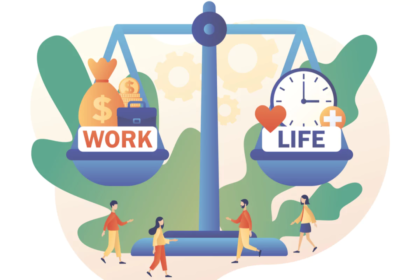The Impact of Artificial Intelligence on Jobs 2024, In recent years, the rapid advancement of artificial intelligence (AI) has transformed numerous industries and sparked widespread discussions about its potential impact on the workforce. As AI systems become increasingly sophisticated, capable of automating tasks and augmenting human capabilities, concerns about job displacement and the future of work have risen to the forefront.
While the implications of AI on employment are complex and nuanced, it’s essential to understand both the challenges and opportunities that this technology presents. By examining the potential effects of AI on various sectors and job roles, we can better prepare for the workforce of tomorrow and ensure a smooth transition for workers and businesses alike.
- Job Automation and Displacement
One of the primary concerns surrounding AI is its ability to automate certain tasks and potentially displace human workers. Industries that rely heavily on repetitive, routine tasks are particularly susceptible to automation by AI systems. For example, in the manufacturing sector, AI-powered robots and machines have already replaced many human workers on assembly lines, leading to job losses in some areas.
Similarly, in the transportation industry, the advent of self-driving vehicles could potentially disrupt the employment of truck drivers, taxi drivers, and delivery personnel. AI-powered software and algorithms are also automating tasks in fields such as accounting, data entry, and customer service, potentially impacting jobs in those areas.
However, it’s important to note that while some jobs may be displaced by AI, new job opportunities are likely to emerge simultaneously. As AI automates certain tasks, it will also create demand for roles related to developing, implementing, and maintaining these technologies.
- Job Creation and New Opportunities
While AI may automate certain tasks, it also has the potential to create new job opportunities and enhance human productivity. As businesses adopt AI solutions, they will require skilled professionals to design, develop, and manage these systems. This could lead to an increased demand for roles such as AI researchers, data scientists, machine learning engineers, and AI ethics specialists.
Additionally, as AI automates routine tasks, human workers will be able to focus on more complex, creative, and strategic roles that require unique human skills like critical thinking, problem-solving, and emotional intelligence. This shift could open up new opportunities in fields such as innovation, design, strategy, and creative industries.
Furthermore, the integration of AI into various sectors could lead to the creation of entirely new job roles and industries that we cannot yet foresee. Just as the rise of the internet and digital technologies gave birth to new professions like social media managers, app developers, and cybersecurity experts, the AI revolution is likely to spawn new job categories and industries we can’t yet imagine.
- Reskilling and Upskilling the Workforce
As AI transforms the job market, it will be crucial for workers to reskill and upskill themselves to remain competitive and adaptable. Individuals and organizations will need to invest in continuous learning and professional development to acquire the skills and knowledge necessary to work alongside AI systems or transition into new roles.
This could involve formal education programs, vocational training, or on-the-job training initiatives focused on developing skills in areas such as data analysis, programming, critical thinking, and problem-solving. Governments, educational institutions, and businesses will need to collaborate to create effective reskilling and upskilling programs to ensure a smooth transition for workers impacted by AI-driven job displacement.
- Ethical Considerations and Responsible AI Development
As AI continues to advance and integrate into various aspects of our lives, it’s essential to address the ethical considerations and ensure responsible AI development. Issues such as algorithmic bias, privacy concerns, transparency, and accountability will need to be carefully examined and addressed.
The development of AI systems must prioritize ethical principles, such as fairness, non-discrimination, and respect for human rights. This will require interdisciplinary collaboration between AI researchers, policymakers, ethicists, and stakeholders from various sectors to establish guidelines and governance frameworks for the responsible development and deployment of AI technologies.
- Adapting to the Changing Workforce Landscape
The impact of AI on jobs will likely vary across industries, regions, and skill levels, creating both challenges and opportunities. To navigate this changing workforce landscape successfully, businesses, policymakers, and individuals will need to adapt and embrace a mindset of continuous learning and flexibility.
Businesses will need to reevaluate their operations, workforce strategies, and organizational structures to effectively leverage AI while providing retraining and support for their employees. Policymakers will need to address issues such as job displacement, income inequality, and the need for social safety nets to support workers during this transition.
Individuals, on the other hand, will need to cultivate a growth mindset, embrace lifelong learning, and develop transferable skills that can adapt to the evolving job market. This might involve pursuing additional education, seeking out new job opportunities, or even considering entrepreneurial ventures.
The impact of AI on jobs is a complex and multifaceted issue that will require a collaborative effort from all stakeholders – policymakers, businesses, educators, and individuals – to navigate successfully. While the adoption of AI may displace certain jobs, it also presents opportunities for job creation, productivity enhancement, and the emergence of new industries and roles.
By proactively addressing the challenges and embracing the opportunities presented by AI, we can shape a future workforce that seamlessly integrates human and machine capabilities, fosters continuous learning and skill development, and ensures a fair and ethical transition for all.
Ultimately, the impact of AI on jobs will be determined by our ability to anticipate and adapt to these changes, while prioritizing responsible development, ethical considerations, and a commitment to empowering and upskilling the workforce of tomorrow.








